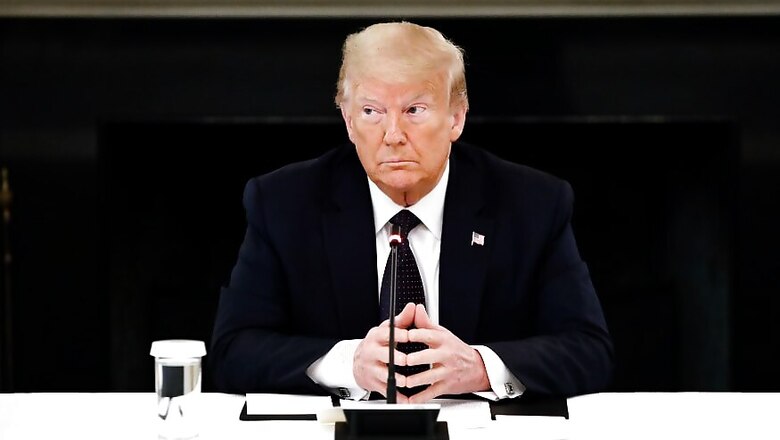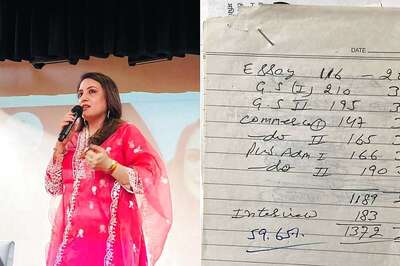
views
Every night in Bangalore, Parvez Shaikh's 18-month-old son wakes up in tears, calling for his mother who is in the United States -- one among hundreds of families staring at an uncertain future after President Donald Trump froze most immigrant visas.
The 33-year-old management consultant and his two children were visiting family in the Indian city in March, when the coronavirus pandemic triggered the suspension of international flights. Since then, they have been stranded.
But he never imagined he would be stopped outright from returning to the US, the country he and his wife, a hardware engineer, have called home for the last seven years.
The Trump administration last month barred new applications for the H-1B and L employment visas for the rest of the year.
It also banned existing visa holders if they were outside the US and required an extension -- effectively cutting them off from their loved ones and their lives back in America.
"My children ask me if someone has stolen our home. Sometimes they (start) looking for their favourite stuffed toy... or their favourite book and I have no answers," Shaikh told AFP.
"Our kids don't know any other home except (America) as they were born in the States," he said, adding that the trauma appeared to have stunted their growth, exacerbating the family's stress.
- Harm to economy -
The prolonged closure of US consulates due to coronavirus forced many immigrants like Shaikh, who needed to have their passports stamped after extending their visas, to postpone their consular appointments, creating a huge backlog.
Trump's decision has now thrown their lives into disarray, hitting Indians particularly hard since they make up 75 percent of H-1B applicants.
After her parents exhausted their savings to fund her education, Bhaagya -- not her real name -- thought she had hit the jackpot when she secured a well-paying job as an IT engineer in the US five years ago.
The 31-year-old, who travelled back to India in February, even managed to pay for her sister's graduate studies in the US.
But she now fears losing her job if she is unable to return due to the new restrictions, setting off a chain reaction.
"My sister can't pay for school if I can't keep my job, which would mean losing her student visa too," she told AFP.
Trump has made immigration reform a key plank of his re-election campaign, touting the order as a cure for the economic woes facing the country.
But critics say the move will do little to spur a recovery.
"How will targeting H-1B visas or a handful of us benefit the US economy if we are here earning in dollars and spending in rupees?" asked software engineer Harpreet Singh, who has been stranded in India since March.
"My company is discussing moving many of the employees to Indian payrolls if the situation does not improve," the 35-year-old told AFP, suggesting that at some multinationals jobs would simply be transferred overseas, instead of being filled by local candidates.
US tech giants have warned that the restrictions on hiring high-skilled workers will harm the economy.
From Microsoft CEO Satya Nadella to Google CEO Sundar Pichai -- both India-born -- Silicon Valley has long relied on foreign talent to boost its bottom line.
- Exodus of talent -
Milan Vaishnav, director of the South Asia programme at the Carnegie Endowment for International Peace, a think tank, told AFP the move amounted to "a self-inflicted wound".
"The White House believes these policies will play very well with their voter base... In reality, this is going to have a profoundly negative effect on the economy that is going to end up hurting the very people Trump claims to be helping," he said.
It could also spark an exodus of talent, he added, as immigrants pursue opportunities elsewhere.
Sindhu Sudhakar told AFP her husband, who works for a global bank in Dallas, had previously rejected job offers in the EU and Britain, preferring to put down roots in the US.
Today, as Sudhakar and her seven-year-old son contemplate spending the rest of the year away from her husband, those decisions have come back to haunt them.
The 33-year-old, who became stranded after flying to India in March to see her ailing mother-in-law, said Trump's announcement had turned an already difficult situation into a nightmare.
"It is extremely draining for all of us," she said.
"We were living the American dream... but now given how volatile the government is, we are rethinking if we even belong there."




















Comments
0 comment